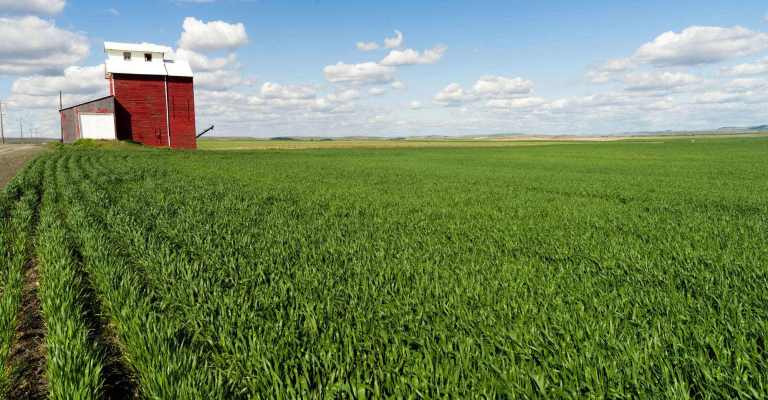(**) Disclosure: This post may contain affiliate links, meaning RealEstateCareerHQ.com will get a commission if you decide to make a purchase through the links, but at no additional cost to you.
When people think of the career as a real estate appraiser, they often limit to appraising for residential houses or condo units. They misunderstand all properties are ordinary and cookie-cutter. However, this industry has a lot more to offer, and farm appraisal is exactly that.
To become a farm appraiser, you need to obtain the Certified General Appraiser license and find a mentor that specializes in agricultural appraisals. It is recommended you to take the related courses to equip yourself with the knowledge and expertise. If you are truly serious in pursuing this niche, you may consider getting the Accredited Rural Appraiser designation.
In this article, you will find out what is an agricultural appraisal, how to become a farm appraiser, the career outlook and what do appraisers think about this niche.
What is an Agricultural Appraisal?

An agricultural appraisal is truly a specialized niche which demands a wide range of knowledge and expertise. It involves an extensive research and multiple angles of consideration.
To write a thorough and complete appraisal report, you’ll also need to know the commodities prices, the quality of the soil, the valuation of the existing facilities and farm equipment, the functionality of the drainage system, the expected amount of rainfall, distance to the shipping facilities, the options to convert the land to higher and better usage.
Every farm owners undoubtedly would want to reduce their operating expenses so that the availability of solar and wind energy is another crucial factor to consider.
Each Farm Appraisal is Different
Each farmland could vary significantly from one another. For example, you could evaluate for a farm with livestock (i.e., cows, pigs, chickens), while an another which mainly produce fruits and vegetables, in some cases, you may even come across one with a horse-riding and training facilities.
Furthermore, every state has its own laws about the land use, which could affect the farm’s valuation. Therefore, it is important for you to be familiar with the rules and regulations.
3 Approaches to Agricultural Appraisal
Although the type of research and data collection could vary a lot for each farmland, the methods that a farm appraiser during the appraisal process could be grouped into the three main categories below.

1) Cost Approach
It estimates how much it would cost to rebuild the property. A simple formula is the cost of rebuilding minus the depreciation.
2) Income Approach
This valuation method involves an in-depth analysis of the incomes and expenses of the subject property.
3) Sales Approach
It is a common approach in appraisals for most real estates. It compares and analyzes recent sales comparable transactions in the same area.
However, one major challenge for writing an agricultural appraisal is the lack of comparable data, especially during the slow seasons when there aren’t many farmlands buy-sell activities.
As mentioned above, in addition to the farmland itself, you need to consider numerous aspects about the farm. There could be times you just need to gather information from different sources.
For example, you may need to contact the local markets when there is livestock in the subject farm. For farm equipment, you could check out websites such as Tractorhouse and Farmers Hot Line.
3 Types of Agricultural Appraisal Reports

1) Restricted Use Appraisal Report
Among all three reports, this contains the least amount of information, which makes it the most affordable option.
This type of report is only useful to the client who ordered the appraisal. It contains your findings, but not the explanation of data, and reasoning on how the opinion of value is developed.
All the data, reasoning and analyses that support your finding are kept in the appraiser’s work file.
2) Summary Appraisal Report
This is the most common kind of appraisal for sales, taxation and estate valuation purposes.
You would provide a summary of the data and analysis, but not in full details. The depth of discussion contains in this report is specific to the needs of the clients.
Supporting documentation about the data, reasoning, and analyses are not included in the report. Instead, they are retained in the appraiser’s file.
3) Self-Contained Appraisal Report
This is the most comprehensive type of report. You would fully describe the data and analysis used in the assignment while including all the necessary information in the appraisal report.
A Self-Contained Appraisal Report contains details such as the physical and economic characteristics relevant to subject property, a detailed description of the information analyzed, the appraisal procedures that you used, the reasoning that supports the analyses, opinions and conclusions.
3 Steps to Become a Successful Farm Appraiser
Step 1: Get the Certified General Appraiser License

This is the highest license type you could get in the appraisal industry. It allows you to appraise any real estates regardless of the transaction values or complexity.
According to the Appraiser Qualifications Board (AQB), you must hold a Bachelor’s degree or higher, complete 300 hours of appraisal courses, obtain 3000 hours of work experience and pass the Certified General Appraiser exam.
However, each state could impose an additional requirement. You should check with the regulatory board in your state.
Step 2: Work Toward a Professional Designation

Although becoming a Certified General Appraiser already grants you the capacity to appraise for farmland, having an agricultural-related designation could set you apart from the competition.
Becoming an Accredited Rural Appraiser could be worth your consideration. This is a designation offered by the American Society of Farm Managers and Rural Appraisers Inc.
It gives reassurance to your clients that you have the necessary skills and expertise to conduct valuation work on a wide range of properties in the rural area.
Some of the agricultural property types that an Accredited Rural Appraiser would involve in the daily activities could be:
- Agricultural Production Facilities – potato houses, cold storage, commercial feed yards, greenhouses
- Agricultural Properties – production agriculture, recreational ranches
To earn this credential, you are required to complete 121 hours of coursework, have at least five years of appraisal work experience, submit a demonstration report, and become an ASFMRA member, and pass the ARA Accrediting exam.
For more info, we include a link to the ASFMRA website in the reference section at the end of this post.
Step 3: Find a Mentor

Textbook knowledge is mandatory, but alone would not be enough to equip you in becoming a great farm appraiser. You should search for an appraiser who has extensive experience in working on agricultural properties.
Ask them if they could become your mentor, and allow you to work alongside with them. Their comprehensive knowledge and practical experience could invaluably enhance your appraisal skills.
You could begin by joining the local chapters within the American Society of Farm Managers and Rural Appraisers Inc., and start connecting with other agricultural appraisers.
Career Outlook of Agricultural Appraisers
According to the details displayed on Payscale.com (Updated: 29 Jan 2019), a real estate appraiser in the agricultural field has a median annual salary of $72,287. The total annual pay is ranged from $41,060 to $104,241.
Although an agricultural appraisal could be a lucrative field, based on a survey conducted by McKissock Learning back in February 2018, there is only 16% of licensed appraisers specialize in farm appraisal.
The shortage of experts could become more severe as many existing appraisers are aging and approaching retirement.
Valuable Advice from Appraiser who Specializes in the Farm Appraisal Niche

“I have been appraising farms and rural properties for nearly 10 years. It’s a rewarding career with some of the most interesting and hard-working folks I’ve ever met. I would suggest taking a few classes with the American Society of Farm Managers and Rural Appraisers (ASFMRA). They specialize in appraising rural properties and are a good network. Some knowledge of cropland and the general agricultural market would be helpful in the job as well. Great article BTW”
George Hunger, Appraiser at Hunger Appraisal Services – hungerappraisals.com
The Bottom Line
To become a farm appraiser, you need first to obtain the Certified General Appraiser license and find a mentor that specializes in agricultural appraisals.
As always you should equip yourself with knowledge and expertise to relevant appraisal skills to be successful in this niche.
McKissock Learning has tremendous options of appraisal courses available where you could take them online whenever and wherever. You could click here to find out the classes available in your state. (**)
So what do you think of becoming a farm appraiser? Please share your thoughts in the comment section below.
(**) Affiliate Disclosure: Please note that some of the links above are affiliate links, and at no additional cost to you. Our company, JCHQ Publishing will earn a commission if you decide to make a purchase after clicking on the link. Please understand that we include them based on our experience or the research on these companies or products, and we recommend them because they are helpful and useful, not because of the small commissions we make if you decide to buy something through the links. Please do not spend any money on these products unless you feel you need them or that they will help you achieve your goals.
Disclaimer: The information in this post is for general information only, and not intend to provide any advice. They are subjected to change any notice, and not guaranteed to be error-free. For full and exact details, please contact the Appraisal Board in your state.
Reference:

